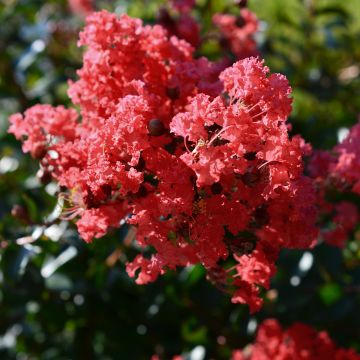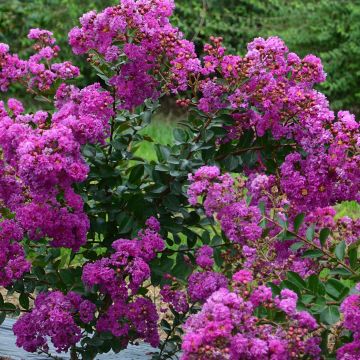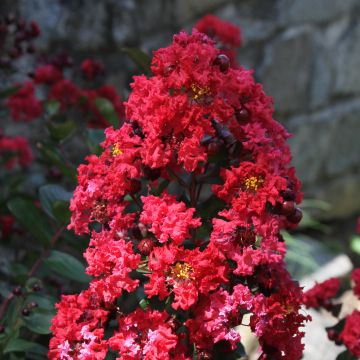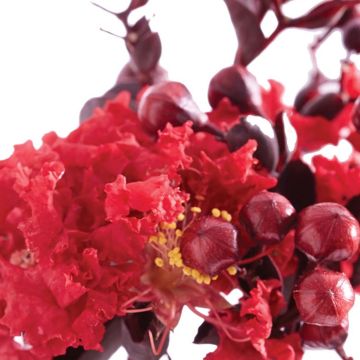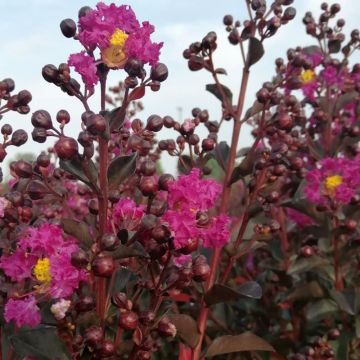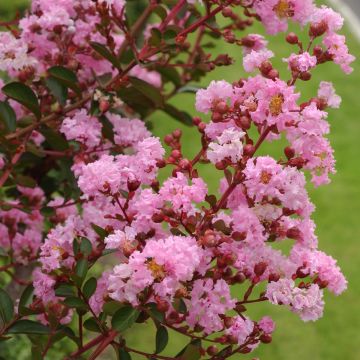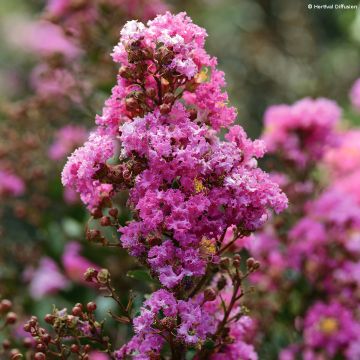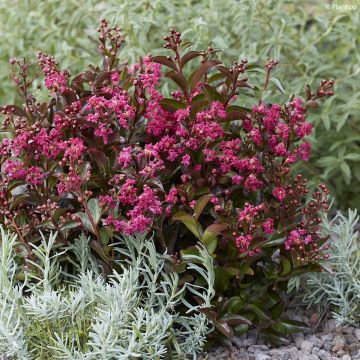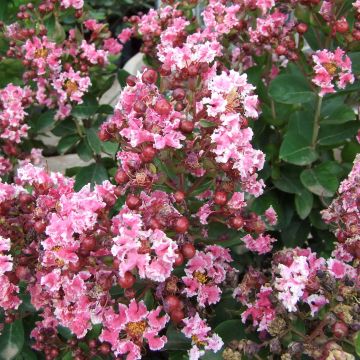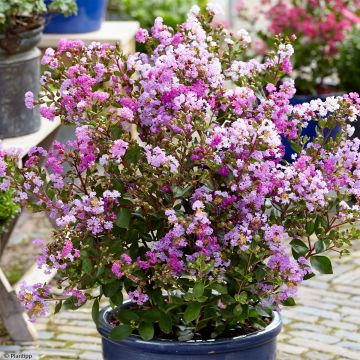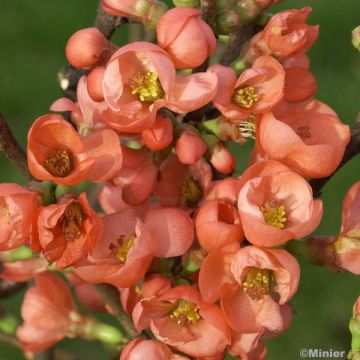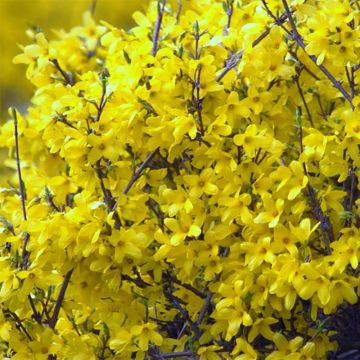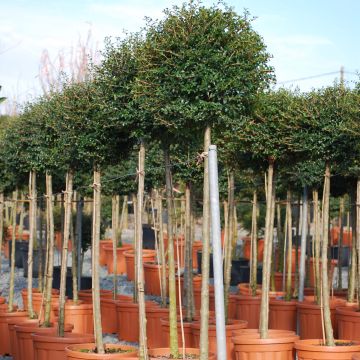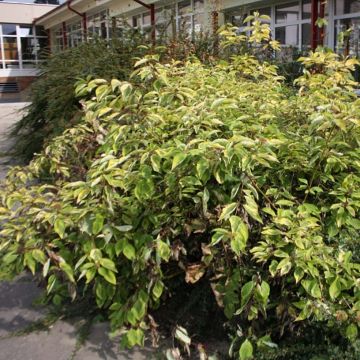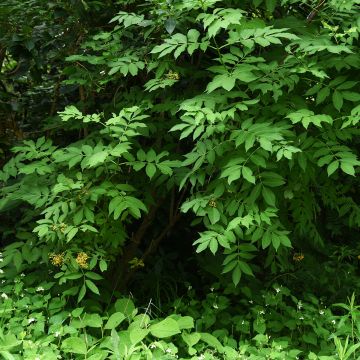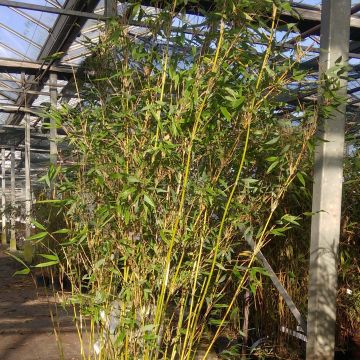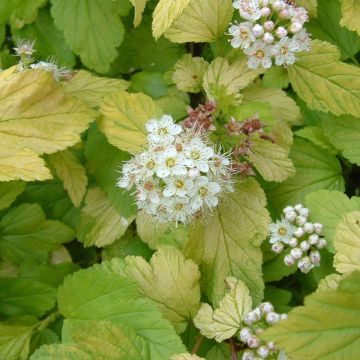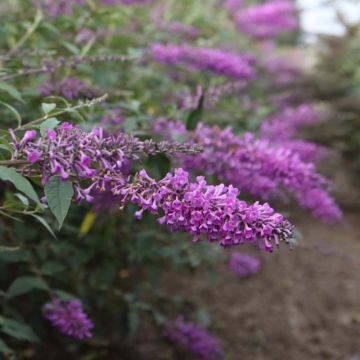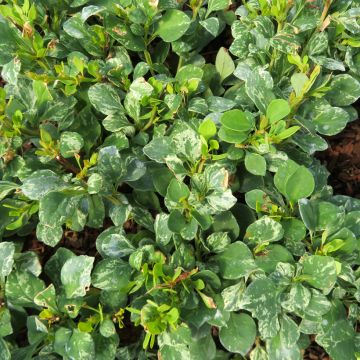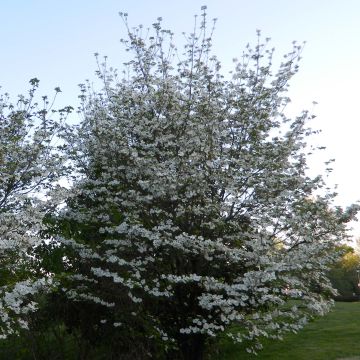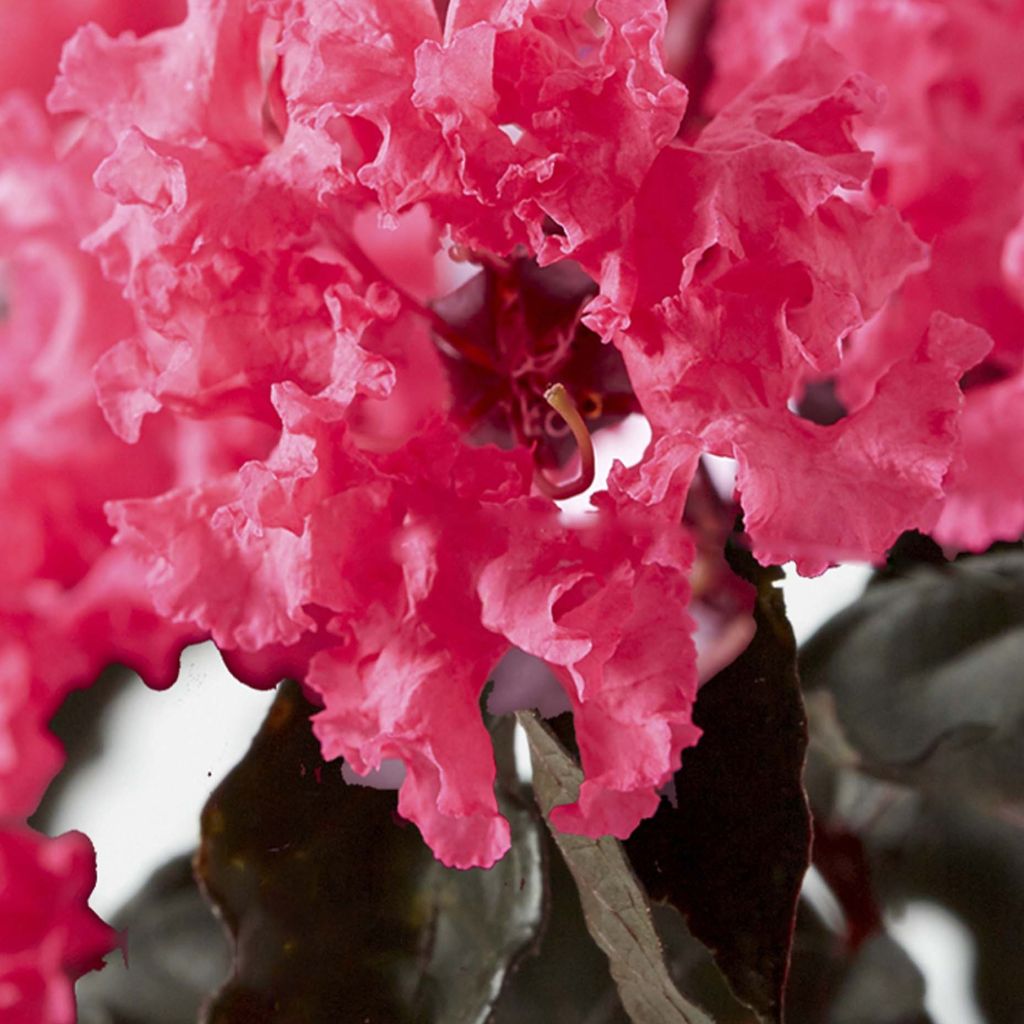

Lagerstroemia indica Black Solitaire Shell Pink - Crape Myrtle
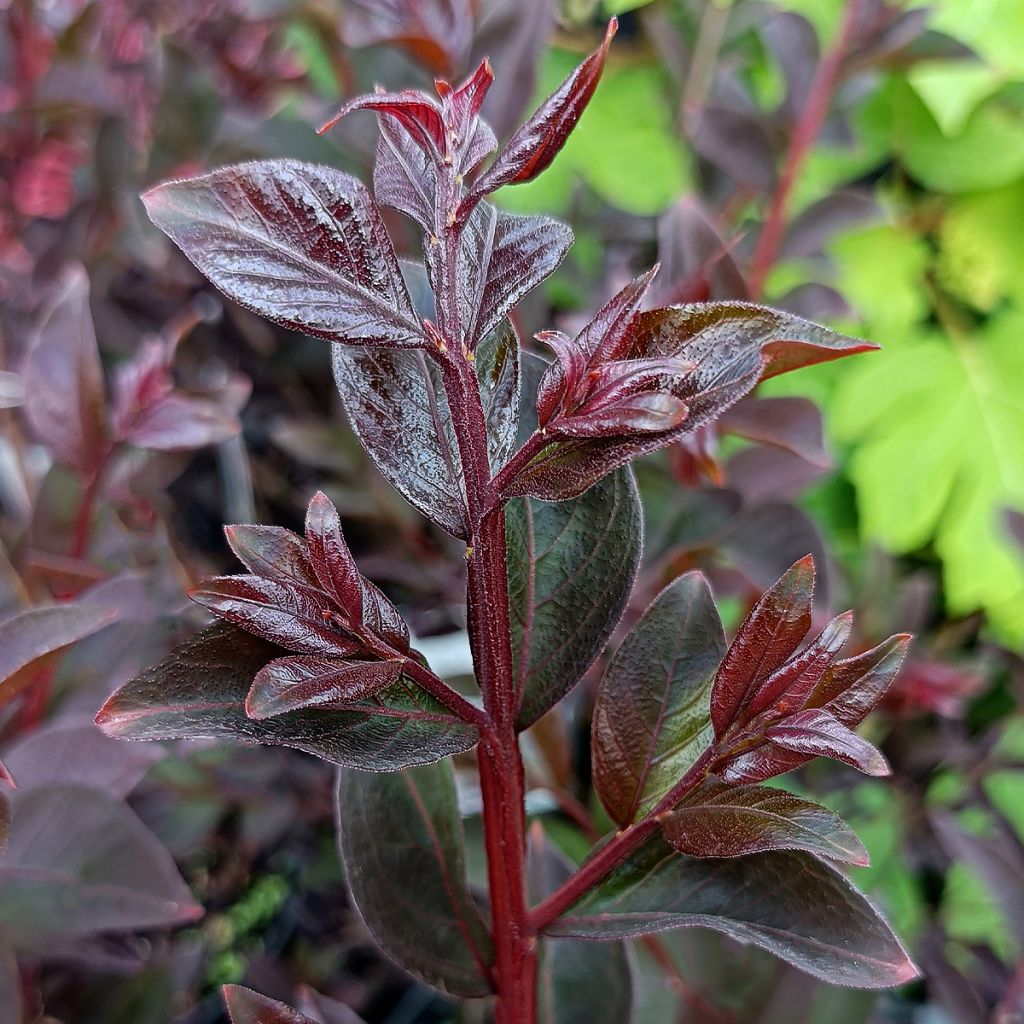

Lagerstroemia indica Black Solitaire Shell Pink - Crape Myrtle
Lagerstroemia indica Black Solitaire Shell Pink - Crape Myrtle
Lagerstroemia indica Black Solitaire® Shell Pink
Crape Myrtle, Crepe Myrtle, Indian Lilac
This item cannot be shipped to the selected country
Oversize package delivery charge from €6.90
Delivery charge from €5.90
Delivery to Corse prohibited
More information
Schedule delivery date,
and select date in basket
This plant carries a 24 months recovery warranty
More information
We guarantee the quality of our plants for a full growing cycle, and will replace at our expense any plant that fails to recover under normal climatic and planting conditions.
Oversize package: home delivery by special carrier from €6.90 per order..
Express home delivery from €8.90.
From €5.90 for pickup delivery and €6.90 for home delivery
Express home delivery from €8.90.
Delivery to Corse prohibited: UE law prohibits the import of this plant from mainland France to Corse as part of the fight against Xylella fastidiosa. Please accept our sincere apologies.
More information

Does this plant fit my garden?
Set up your Plantfit profile →
Description
Lagerstroemia indica Shell Pink Black Solitaire (synonym Black Diamond), is yet another superb Indian lilac from the amazing Black Diamond® series. This variety carries clusters of flowers with a very beautiful bright pink hue for over two months, in the heart of summer. It bears stunning, shiny foliage that is almost black. Like all Black Solitaire varieties, this Lagerstroemia is more resistant to powdery mildew and tolerates cold as well as moderate periods of drought. These lilacs are also appreciated for their richly coloured, ornamental bark all year round. Its moderate development is suitable for small gardens and container cultivation.
Shell Pink is part of a series of carefully selected hybrids in Texas from the 'EBONY®' varieties, characterised by very dark foliage. Not exceeding 3 m (9.8 ft) in height, these Indian lilacs are also distinguished by their fairly rapid growth and their ease of cultivation in any well-draining soil. Hardy up to -15° C (5° F).
Shell Pink belongs to the Lythraceae family, just like Lagerstroemia indica it originates from. The latter is native to China. This shrub has a bushy and branched habit from the base, with a rather upright crown. It will reach an average height of 2.5 m (8.2 ft) at maturity, with a diameter of 2 m (6.6 ft). Its growth is fairly rapid. Flowering starts in early July and continues until September. The inflorescences are composed of fine pedicels, each bearing five petals with very undulate edges, whose texture resembles that of crepe. They are gathered in dense panicles at the ends of the year's branches.
In Shell Pink, the pedicels and flower buds are a very dark purple-brown, then the flower buds open widely in a beautiful pale pink shade that slightly fades over time. The centre of the flowers is enlivened by fine golden yellow stamens. The leathery and deciduous foliage retains its very dark burgundy-chocolate-violet colour from spring to summer, then takes on more purplish reflections in autumn before falling. It is composed of small, ovate and pointed leaves with a shiny appearance. Finally, and to end on a beautiful note, its bark is truly magnificent: smooth, beige streaked with grey, reddish-brown, and peeling off in coloured patches (cinnamon, muted red, old rose, or cream).
Indian Lilacs traditionally thrive in warmer regions, but these small trees can be acclimatised in colder areas, especially its improved varieties, which are hardier. Enjoy its beauty when planted in isolation near the house. It also looks good in a shrub bed, a flowering hedge, or emerging from a mound of perennials. Create a bed like a bouquet, with Nepeta, Salvia sclarea or S. jamensis, or Aster laevis. In autumn, it complements the beautiful autumn foliage of cotinus and deciduous euonymus. Consider planting in a large pot for a patio, where it will put on a magnificent show. We have imagined a simple tricolour plant tapestry as a ground cover to enhance this variety: a carpet of Stachys byzantina, Nepeta mussini, and silver baskets will dress the base of its trunk, highlighting the beauty of its bark, black foliage, and pastel flowering.
Note: Karl Von Linné named this tree to pay tribute to his friend Magnus Von Lagestroem (1696 - 1759), who had sent it to him from India for identification. Originally, this tree was used to decorate Chinese temples. We would like to point out that this tree produces fruits that have a narcotic effect if ingested.
Report an error about the product description
Lagerstroemia indica Black Solitaire Shell Pink - Crape Myrtle in pictures


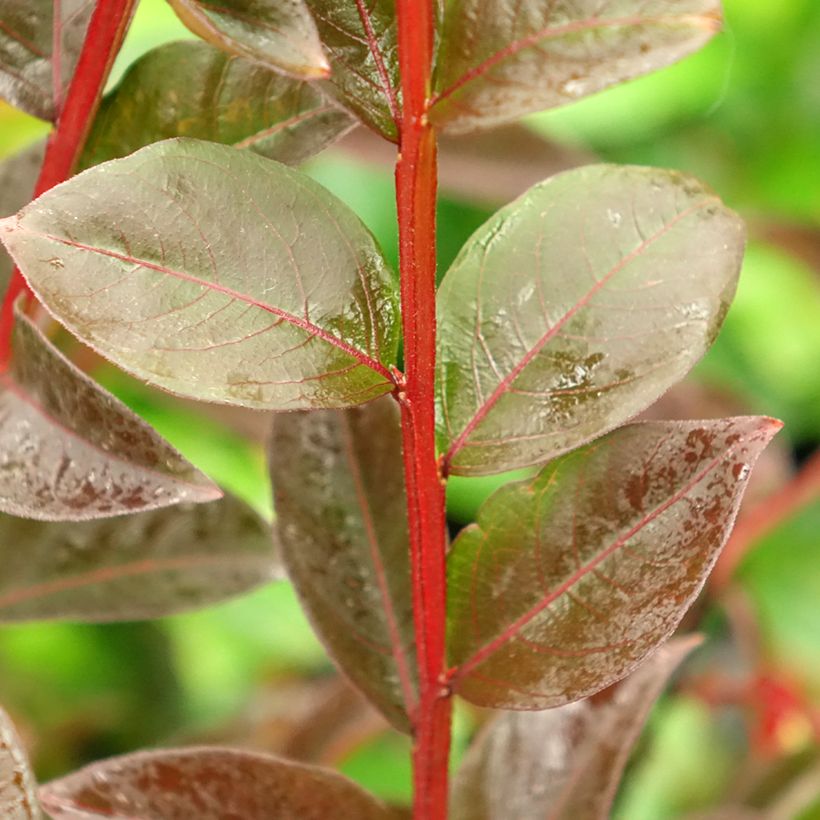

Plant habit
Flowering
Foliage
Botanical data
Lagerstroemia
indica
Black Solitaire® Shell Pink
Lythraceae
Crape Myrtle, Crepe Myrtle, Indian Lilac
Cultivar or hybrid
Other Lagerstroemia - Crape Myrtle
Planting and care
Plant in spring, when there is no longer any risk of frost, in a very sunny and sheltered location. Choose rich, moist but well-drained soil that is preferably slightly acidic, neutral or not very chalky. It will appreciate the addition of compost and a thick layer of dead leaves, especially during the first two winters in cold regions. Prune the floriferous branches very short in February-March, leaving only 4 to 6 buds to balance its habit and stimulate the growth of future flower-bearing branches. If necessary, remove weak twigs and poorly positioned branches.
Planting period
Intended location
Care
-
, onOrder confirmed
Reply from on Promesse de fleurs
Hedge shrubs
Haven't found what you were looking for?
Hardiness is the lowest winter temperature a plant can endure without suffering serious damage or even dying. However, hardiness is affected by location (a sheltered area, such as a patio), protection (winter cover) and soil type (hardiness is improved by well-drained soil).

Photo Sharing Terms & Conditions
In order to encourage gardeners to interact and share their experiences, Promesse de fleurs offers various media enabling content to be uploaded onto its Site - in particular via the ‘Photo sharing’ module.
The User agrees to refrain from:
- Posting any content that is illegal, prejudicial, insulting, racist, inciteful to hatred, revisionist, contrary to public decency, that infringes on privacy or on the privacy rights of third parties, in particular the publicity rights of persons and goods, intellectual property rights, or the right to privacy.
- Submitting content on behalf of a third party;
- Impersonate the identity of a third party and/or publish any personal information about a third party;
In general, the User undertakes to refrain from any unethical behaviour.
All Content (in particular text, comments, files, images, photos, videos, creative works, etc.), which may be subject to property or intellectual property rights, image or other private rights, shall remain the property of the User, subject to the limited rights granted by the terms of the licence granted by Promesse de fleurs as stated below. Users are at liberty to publish or not to publish such Content on the Site, notably via the ‘Photo Sharing’ facility, and accept that this Content shall be made public and freely accessible, notably on the Internet.
Users further acknowledge, undertake to have ,and guarantee that they hold all necessary rights and permissions to publish such material on the Site, in particular with regard to the legislation in force pertaining to any privacy, property, intellectual property, image, or contractual rights, or rights of any other nature. By publishing such Content on the Site, Users acknowledge accepting full liability as publishers of the Content within the meaning of the law, and grant Promesse de fleurs, free of charge, an inclusive, worldwide licence for the said Content for the entire duration of its publication, including all reproduction, representation, up/downloading, displaying, performing, transmission, and storage rights.
Users also grant permission for their name to be linked to the Content and accept that this link may not always be made available.
By engaging in posting material, Users consent to their Content becoming automatically accessible on the Internet, in particular on other sites and/or blogs and/or web pages of the Promesse de fleurs site, including in particular social pages and the Promesse de fleurs catalogue.
Users may secure the removal of entrusted content free of charge by issuing a simple request via our contact form.
The flowering period indicated on our website applies to countries and regions located in USDA zone 8 (France, the United Kingdom, Ireland, the Netherlands, etc.)
It will vary according to where you live:
- In zones 9 to 10 (Italy, Spain, Greece, etc.), flowering will occur about 2 to 4 weeks earlier.
- In zones 6 to 7 (Germany, Poland, Slovenia, and lower mountainous regions), flowering will be delayed by 2 to 3 weeks.
- In zone 5 (Central Europe, Scandinavia), blooming will be delayed by 3 to 5 weeks.
In temperate climates, pruning of spring-flowering shrubs (forsythia, spireas, etc.) should be done just after flowering.
Pruning of summer-flowering shrubs (Indian Lilac, Perovskia, etc.) can be done in winter or spring.
In cold regions as well as with frost-sensitive plants, avoid pruning too early when severe frosts may still occur.
The planting period indicated on our website applies to countries and regions located in USDA zone 8 (France, United Kingdom, Ireland, Netherlands).
It will vary according to where you live:
- In Mediterranean zones (Marseille, Madrid, Milan, etc.), autumn and winter are the best planting periods.
- In continental zones (Strasbourg, Munich, Vienna, etc.), delay planting by 2 to 3 weeks in spring and bring it forward by 2 to 4 weeks in autumn.
- In mountainous regions (the Alps, Pyrenees, Carpathians, etc.), it is best to plant in late spring (May-June) or late summer (August-September).
The harvesting period indicated on our website applies to countries and regions in USDA zone 8 (France, England, Ireland, the Netherlands).
In colder areas (Scandinavia, Poland, Austria...) fruit and vegetable harvests are likely to be delayed by 3-4 weeks.
In warmer areas (Italy, Spain, Greece, etc.), harvesting will probably take place earlier, depending on weather conditions.
The sowing periods indicated on our website apply to countries and regions within USDA Zone 8 (France, UK, Ireland, Netherlands).
In colder areas (Scandinavia, Poland, Austria...), delay any outdoor sowing by 3-4 weeks, or sow under glass.
In warmer climes (Italy, Spain, Greece, etc.), bring outdoor sowing forward by a few weeks.

































